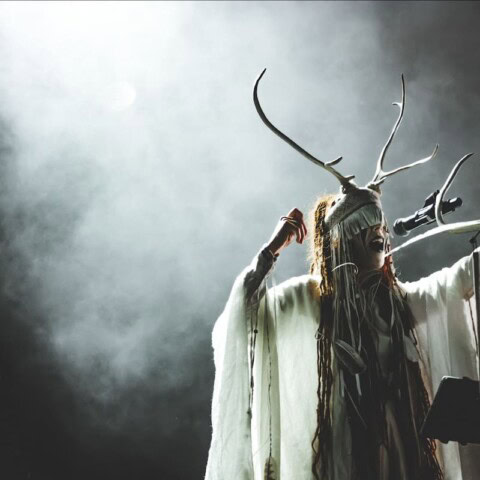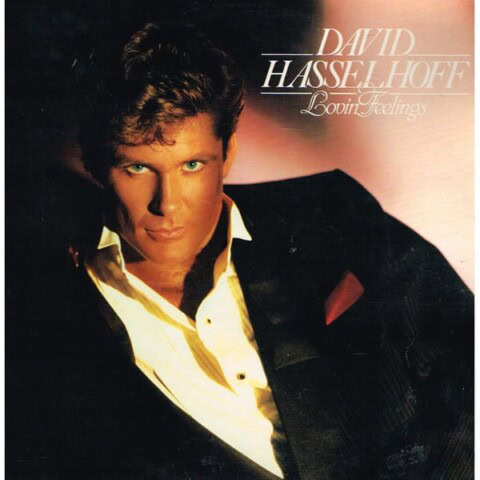 In honour of NZ Music Month, Gary Steel climbs into the crumbling catacombs of his back catalogue, and disinters a different story Every Day In May (EDIM). Today’s piece is a reminder that the multitalented Don McGlashan (Blam Blam Blam, The Front Lawn, The Muttonbirds) once upon a time took it upon himself to bang long tubes of PVC plastic. It was published in TOM way back in 1984.
In honour of NZ Music Month, Gary Steel climbs into the crumbling catacombs of his back catalogue, and disinters a different story Every Day In May (EDIM). Today’s piece is a reminder that the multitalented Don McGlashan (Blam Blam Blam, The Front Lawn, The Muttonbirds) once upon a time took it upon himself to bang long tubes of PVC plastic. It was published in TOM way back in 1984.
Note: How many even remember that Mr Muttonbird was once a member of that experimental trio, From Scratch? Looking back, I’m ashamed I failed to mention that From Scratch was led and overseen by the legendary Phil Dadson. I love the fact that in 1984, McGlashan went on about writing so few songs, and yet just a few years later he was pumping them out in a band that came as-close-as-this to repeating Crowded House’s success in international waters.
FROM SCRATCH IS one of the most interesting ensembles due to perform during the Asia Pacific Festival early in December. And one third of From Scratch is Don McGlashan. And Don McGlashan is an amazing man. And he talked to TOM about From Scratch and other things down the local the other week. And I promise this is the last sentence starting with ‘and’ in this story.
It’s the lull in the middle of a Tuesday afternoon. The Clarendon is emptied of its usual middling patrons, but still far too noisy for the best interview on earth, which will have to wait for some other day. Interminable videos flicker and burble through the space, but the maestro’s not complaining.
Okay, so who does this chump think he is, and what’s his birth sign, anyway?
McGlashan emerged onto the popular scene in 1980 when he was a-spotted sashaying with and adding various percussive devices and delights to the general wambam that was the Whizzkids, who of course later evolved into the wonderful Blam Blam Blam.
The man had a history which stretched further into the annals of time than his debut with From Scratch in ’78, but TOM doesn’t pride itself in its archeological qualifications. Suffice to say that in the Blams, McGlashan was one of the most important and persuasive (not to mention percussive. I said not to…) elements; he added a musicality, a sense of almost avant adventurism (but never obese or flatulent experimentation) to the most perfect unrock rock band of them all. His songs were their best songs: they included the awe-inspiring ‘Marsha’, and ‘Call For Help’.

As some may remember, the Blams career came to a premature and bloody end with an auto accident, at which point Don got a grant to study music and dance in America. Since his return, he has (among other things) been involved in a mini-Blams reunion, made noises with people as diverse as Ivan Zagni and Steve Garden, taught music in schools, written and recorded music for Limbs Dance Co, and scored his first film. Want more? Read on dear digit.
McGlashan is here today mainly to do with From Scratch, a group which has been charting their own course in unique original music and movement since the early ‘70s. This year has seen much activity in the From Scratch camp, with performances at the prestigious Edinburgh Festival and a first flourish of international praise.
McGlashan speaks of the festival with incredulity: “It’s a mammoth show, with something like 350 fringe shows going all the time, and that’s in a city smaller than Auckland.
“We worked for two weeks in the gallery section of the Edinburgh College of Art. The whole New Zealand exhibition was there except for the Colin McCahon show which had its own space… in a sense, we were annexed off from the main festival.”
These concerts were minimally attended, he says, but an outside show boosted interest to such an extent that their final two indoor shows were full. “Those were the most successful shows, and the shows the critics came to. The general consensus was that it was one of the best things at the festival.” This is not to say that the praise came easily. “It’s hard to pigeon-hole us,” says McGlashan. You have a newspaper that has an art critic, a dance critic, a performance critic and a music critic. They each say ‘It doesn’t really sound like my field’, so they probably end up sending their food critic along.”
The image most people probably have of From Scratch is three men standing chipping away at formidable PVC pipes. There’s much more to it than meets the eye:
 “The group is trying to integrate the different media – music and movement and performance art and sculpture. It’s only really in the West that these different disciplines have become separated.”
“The group is trying to integrate the different media – music and movement and performance art and sculpture. It’s only really in the West that these different disciplines have become separated.”
Is From Scratch accessible to jack pratt in the street?
“Yeah, I think so. The stuff should affect you in a natural way, just like a rock and roll concert. A big cross-section of people have been coming to see us lately in Auckland – not just people with art history degrees. The slow way the music is built – they can [hopefully] relate that to some innate memory of what rituals must be like. They can see the mathematical basis of the rhythms and they can relate that to systems music [Steve Reich, Philip Glass, Michael Nyman et al] – music based on repetition of simple forms.”
Last year’s mini-LP Gung Ho Parts 1,2,3,D [“Yeah”, says the man, “it’s not exactly ‘I Love You Rosie’] was “like archetype – excerpts – of a From Scratch piece. The pieces we are doing in Wellington are two pieces over a half-hour each, built up of modules of rhythmic material – short pieces interspersed with other transitional pieces.”
McGlashan says the real strength of From Scratch is its Socialist structure. “The experience of the performer and the listener shouldn’t be that different… a ritual that’s shared.
“One of the main things that ran through the minimalist work of the ‘60s was that the scaffolding was visible. There’s no hidden bullshit that means the people that made the music are an elite that are separate… there’s no solos and no accompaniments. Everything is three people playing at the same time, more or less. Rhythmic parts are all shared.”
From Scratch may be innovative, but there is not a hint of improvisation in their music. “It’s all written out. You get a number series, or a graphic shape that generates the structure of the music. All you’ve got to do to write it is to fill in the gaps – it’s like the music almost writes itself. And all you have to do is make the growth of the piece as natural as possible.” In my own words, no pre-tension in its pro-gression!
Enuff’s enuff. You’ll all get a chance to catch From Scratch at work during the festival. So what of McGlashan’s other projects?
“I’m planning to do a solo tour next year. Whenever I get a chance I try to write songs, but at the moment they’ve all got too many words in them.”
He’s also doing workshops here with Marianne Schulz, an American dancer on December 9 and 10. This is one outcome of his study year in the US.
Another project he undertook in ’84 was the film score to Sue McCauley’s Other Halves, which is directed by John Lang who did Beyond Reasonable Doubt. It’s billed as ‘A Dangerous Love Story’.
The only experience McGlashan had had in this particular pasture was writing incidental music for TV’s Mortimer’s Patch, which he says was “one of the first things I did when I first dropped out of university.”
“Early Blams songs had bits of poached ‘Inspector Mortimer walks up the stairs’ music. That was a good experience because you had to churn the stuff out so fast. You’d be writing from 1am to 9am, and at 9.15am you had to be in the dubbing suite, recording the track!”
 As for the possibility of working within a ‘band’ again, he says he would if the “right combination came up”, but that “there’s certainly very little stuff I’ve ever done that I’m happy with… if I continue at this rate it’ll be 20 years before I’ve got enough songs together to play a decent set.”
As for the possibility of working within a ‘band’ again, he says he would if the “right combination came up”, but that “there’s certainly very little stuff I’ve ever done that I’m happy with… if I continue at this rate it’ll be 20 years before I’ve got enough songs together to play a decent set.”
McGlashan’s got a lot to say. He’s full of ideas. Everything he says with a sense of economy and thoughtfulness. He’s also not one to over-estimate his own talent. Of the Blams stuff, he likes ‘Marsha’ the most, because it was a song “people could actually get inside, rather than a song which is trying to be clever-clever.”
We talked for an hour and there’s lots we couldn’t fit onto this page… talk about his production work with the Netherworld Dancing Toys, his teaching, England and expatriate NZers, Auckland. Another day, another page.
Let us not underestimate Don McGlashan. GARY STEEL















